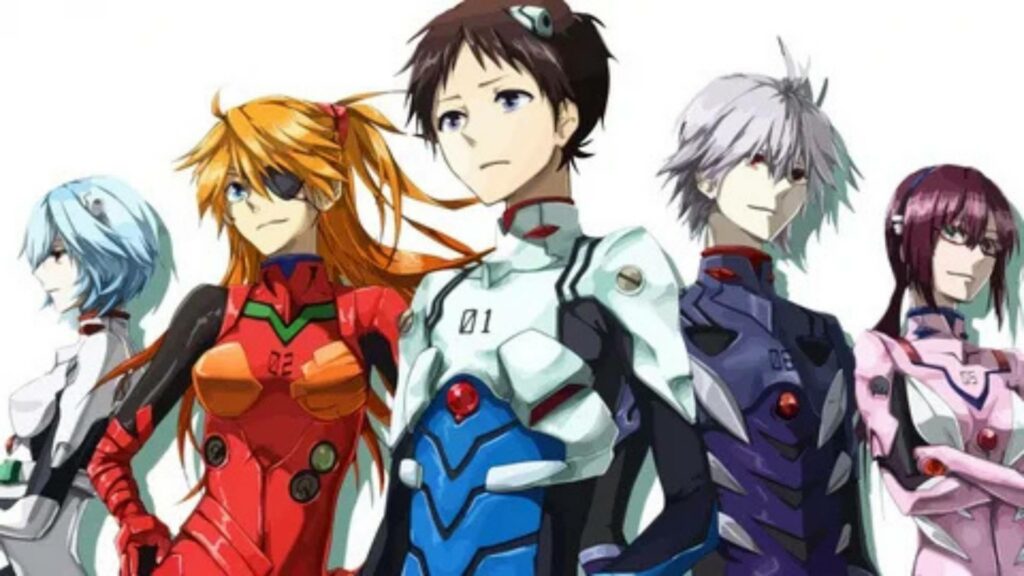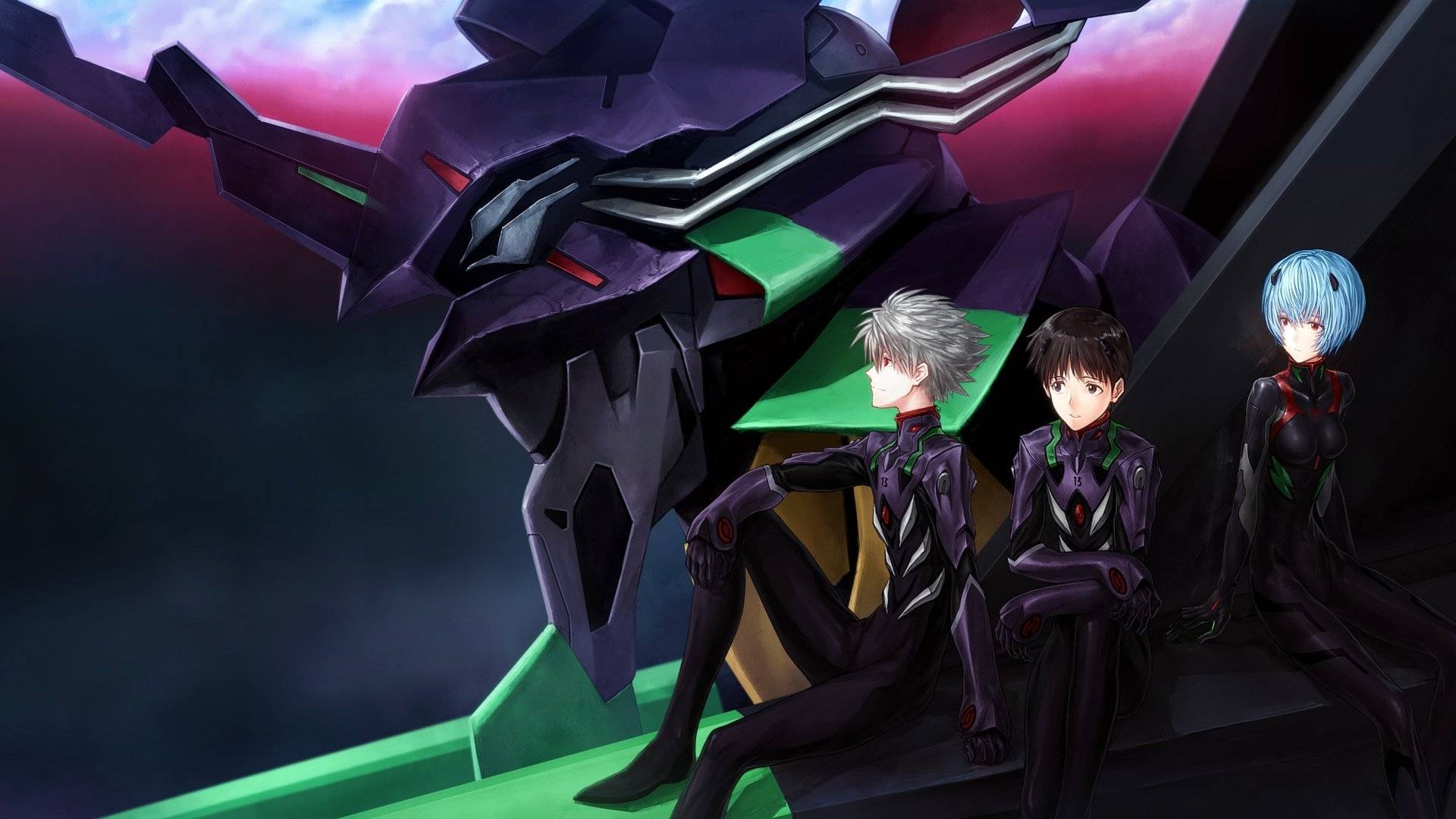Hideaki Anno’s masterpiece Neon Genesis Evangelion transcends the boundaries of traditional mecha anime to deliver a profound psychological exploration of its characters. Beneath the apocalyptic battles and religious symbolism lies a complex study of human psychology, trauma, and the fundamental yearning for connection. This analysis delves into the psychological depths of the series’ key characters, examining how their internal struggles reflect broader themes of human existence.
Shinji Ikari: The Hedgehog’s Dilemma
At the heart of Evangelion is Shinji Ikari, a character whose psychological complexity has made him one of anime’s most analyzed protagonists. Shinji embodies what philosopher Arthur Schopenhauer called “the hedgehog’s dilemma” – the painful choice between intimacy with its risks of emotional harm and isolation with its guaranteed loneliness.

Shinji’s core psychological conflict stems from abandonment trauma. After his mother’s death and father’s emotional desertion, he developed an avoidant attachment style characterized by:
Fear of rejection leading to social withdrawal
Passive-aggressive behavior patterns
Seeking external validation while simultaneously fearing dependency
Self-loathing and a fragile sense of identity
His infamous catchphrase “I mustn’t run away” reveals his constant battle between flight instinct and the desire to be acknowledged. This internal struggle manifests physically through his relationship with Eva Unit-01, which simultaneously represents his mother’s protection, his father’s approval, and his own potential for agency.
The series portrays Shinji’s depression with remarkable clinical accuracy. His loss of interest in former pleasures (like his SDAT player), disrupted sleep patterns, and persistent feelings of worthlessness align with diagnostic criteria for major depressive disorder. His occasional dissociative episodes, particularly evident in the train sequence in Episode 16, suggest additional trauma responses.
What makes Shinji’s character so resonant is that his psychological struggles, while extreme, are fundamentally human. His fear that “no one can truly understand another person” reflects the existential isolation we all experience to varying degrees.

Asuka Langley Sohryu: Narcissistic Defense
If Shinji withdraws to avoid pain, Asuka Langley Sohryu takes the opposite approach – she attacks first. Her aggressive personality and superiority complex function as psychological defense mechanisms protecting a deeply wounded core.
Asuka’s childhood trauma rivals Shinji’s in intensity. Witnessing her mother’s psychotic break, suicide, and being “replaced” in her mother’s mind by a doll created a profound narcissistic injury. To protect herself from further abandonment, Asuka constructed a false self built around achievement and superiority:
Her obsession with being “the best” Eva pilot
Constant need for admiration and recognition
Intense fear of mediocrity or being “replaced”
Inappropriate sexual provocativeness as a means of control
Psychologically, Asuka displays traits consistent with narcissistic personality organization, though not a full disorder. Her grandiosity masks profound insecurity, and her hostility toward others (especially Shinji) represents projected self-hatred. When her identity as an elite pilot is threatened, her psychological defenses collapse catastrophically.
The series’ most devastating portrayal of Asuka comes in Episode 22, where her mind rape by the 15th Angel strips away her defensive structures, forcing her to confront her repressed trauma. Her subsequent breakdown, culminating in her failed suicide attempt, represents the danger of building one’s entire identity around denial and external validation.

Rei Ayanami: Identity and Existential Void
Rei Ayanami presents perhaps the most unique psychological profile in the series. As a partial clone containing Lilith’s soul, she exists at the boundary between human and non-human, raising profound questions about identity, consciousness, and the nature of self.
Rei’s psychological development was deliberately stunted by Gendo, resulting in:
Minimal emotional expression or attachment
Absence of ego boundaries
Limited sense of self-preservation
Existential uncertainty about her purpose and identity
From a clinical perspective, Rei displays characteristics resembling schizoid personality patterns and alexithymia (difficulty identifying and expressing emotions). However, these manifestations stem not from psychological defense mechanisms but from her unique existential position as a being who is simultaneously an individual and a replaceable part.
Rei’s psychological journey involves the gradual development of autonomy and identity. Her growing attachment to Shinji represents her first meaningful connection outside Gendo’s instrumental control. When she chooses to sacrifice herself rather than follow Gendo’s scenario, it marks her first truly autonomous act – the assertion of an identity separate from her designed purpose.
The question “If I am the third, who are the first and second?” encapsulates Rei’s central psychological dilemma: can a being with artificial origins and replaceable physical form develop an authentic, continuous sense of self?
Misato Katsuragi: Trauma and Repetition Compulsion
As the adult foil to the teenage protagonists, Misato Katsuragi offers a glimpse of how childhood trauma continues to shape adult psychology. Having witnessed her father’s death during Second Impact, Misato’s adult personality is structured around what Freud termed “repetition compulsion” – unconsciously recreating traumatic situations in an attempt to master them.
Misato’s psychological patterns include:
Self-destructive relationships with emotionally unavailable men (Kaji)
Using sexuality as a means of temporary connection while avoiding intimacy
Alternating between professional competence and chaotic personal life
Alcohol dependence as self-medication for PTSD symptoms
Her relationship with Shinji takes on complex psychological dimensions as she simultaneously attempts to mother him, use him as a weapon against the Angels (recreating her father’s scientific objectification), and occasionally crosses inappropriate boundaries. Her promise to “show him something good” after the final Angel battle represents her ultimate confusion of nurturing and sexuality.
Misato’s defining psychological moment comes when she recognizes her pattern of using Shinji as she herself was used. Her final act – sacrificing herself while urging Shinji to make his own choice – represents her breaking the cycle of exploitation that defined her relationship with her father and NERV.
Gendo Ikari: Pathological Grief and Instrumental Relationships
While often portrayed simply as the series’ antagonist, Gendo Ikari’s psychology offers a disturbing study in pathological grief and emotional detachment. Following Yui’s “death,” Gendo’s entire existence becomes oriented around a single goal – reunion with his wife – at the expense of all other relationships.
Gendo’s psychological profile includes:
Complete instrumentalization of others (including his son)
Emotional compartmentalization
Antisocial traits including manipulation and disregard for social norms
Pathological grief response preventing normal mourning
His relationship with Rei represents the most disturbing aspect of his psychology – creating a clone of his wife that he can control absolutely, while simultaneously maintaining her as a tool for his reunion plan. This represents a profound distortion of the normal grief process, where the bereaved gradually reinvests emotional energy in new relationships.
In the end, Gendo’s rejection by Yui during Instrumentality reveals the fundamental flaw in his psychology: he sought to possess rather than understand her, treating her as an object of his desire rather than a separate being with agency.

Kaworu Nagisa: The Perfect Mirror
Despite his brief appearance, Kaworu Nagisa serves as a crucial psychological catalyst for Shinji. As the final Angel in human form, Kaworu represents unconditional acceptance – the exact opposite of what Shinji has experienced from others.
Kaworu’s psychological function in the narrative:
Providing Shinji with unambiguous love and acceptance
Representing the possibility of connection without pain
Serving as a mirror reflecting Shinji’s yearning for intimacy
Creating a scenario where Shinji must destroy the only person who fully accepted him
Kaworu’s statement that “pain is something that humans can overcome in their hearts” directly challenges Shinji’s core belief that connection inevitably leads to suffering. His willing sacrifice forces Shinji to confront the ultimate psychological question of the series: Is the possibility of connection worth the inevitable pain of loss?
The Collective Unconscious: Human Instrumentality Project
The culmination of Evangelion’s psychological exploration comes in the controversial final episodes and End of Evangelion film, where the Human Instrumentality Project represents the ultimate psychological question: Is individual existence with its pain preferable to merged consciousness without boundaries?
This scenario directly engages with Freudian concepts of the death drive (the desire to return to an inorganic state) and Jungian ideas of the collective unconscious. The sea of LCL becomes a literal manifestation of the pre-individual psychological state, where ego boundaries dissolve and all minds merge into a collective consciousness.
Shinji’s ultimate rejection of Instrumentality represents the series’ psychological thesis: that despite the pain of individual existence – the hedgehog’s dilemma – the alternative of merged consciousness represents a form of death. His choice affirms that the risk of pain in human connection is preferable to the safety of non-existence.
Psychological Realism and Universal Resonance
What elevates Evangelion’s character psychology beyond typical anime is its clinical accuracy. The characters don’t merely display “anime psychology” – their conditions, defense mechanisms, and symptoms align with real psychological phenomena. Anno, drawing from his own experience with depression, created characters whose psychological struggles, while heightened for dramatic effect, remain fundamentally recognizable.
The series’ enduring impact stems from this psychological authenticity. Beneath the apocalyptic scenario and religious symbolism, viewers recognize their own struggles with identity, connection, and meaning. Evangelion suggests that while we may not pilot giant robots or face world-ending threats, we all navigate the same fundamental psychological challenges as its broken, beautiful characters.
In this way, Neon Genesis Evangelion transcends its genre to become something more profound – a meditation on the human condition itself, with all its painful limitations and possibilities for growth.
What aspects of Evangelion’s psychological portrayal resonated most with you? Do you see yourself reflected in any of these characters’ internal struggles? The series continues to invite viewers not just to analyze its characters, but to use them as mirrors for understanding our own psychological landscapes.





